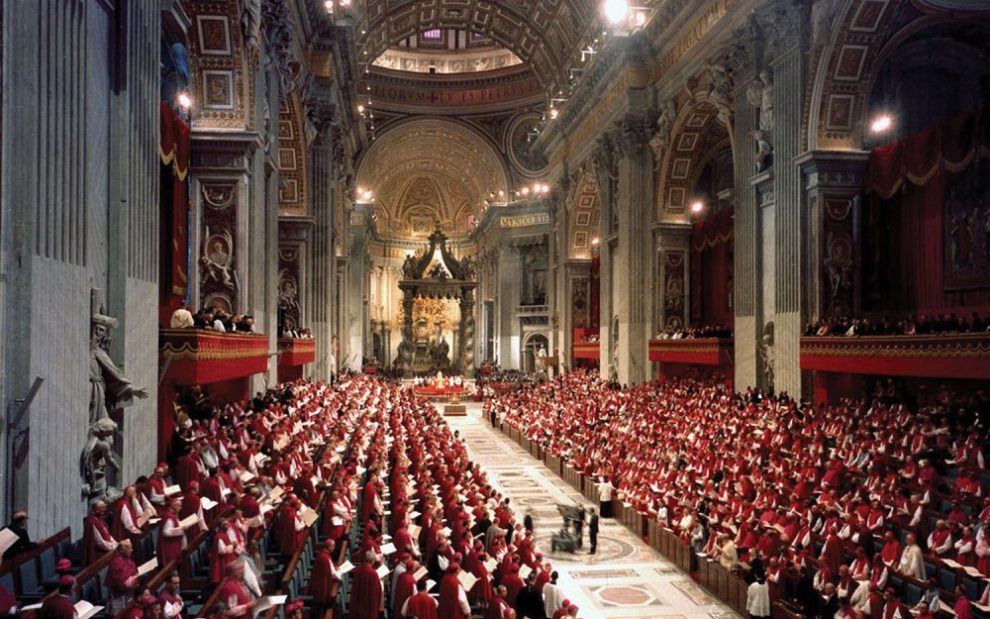As I do every year, I spent a long evening back in March watching the Oscars. Sure, it’s a parade of glitzy fashions and often debatable award winners giving mostly forgettable speeches. It’s also an opportunity to honor some of the most influential storytellers of our generation.
What all these people do for a living—from actors, writers, and directors down to the humblest sound editors and set designers—is hold up a mirror in which to perceive ourselves and our culture. These mythmakers can startle us with wonders, challenge us with uncomfortable ideas, comfort us with bedtime stories, offer us hope that we can be better than we are, or warn us what could happen if we’re not. In a way, the folks inside the great story machines of our age function like the biblical prophets of old. When they get the message right, we’re all the richer for it. If they get it wrong—especially if they deliberately deceive or distort—the price we pay may be greater than we imagine.
Stories matter to me, because I, too, am a professional storyteller. Like everyone who serves the church in any capacity, I’m invested with the privilege of sharing the sacred stories of our faith to readers, retreat attendants, and conversation partners across many media venues. If you’re a person of faith, of course, the same holds true for you in the many avenues of your life: among family, friends, coworkers, parishioners, neighbors, and the random strangers who cross your path. Rarely in such settings do we find ourselves literally retelling the story of the prodigal son, say, to folks in our living room or at the supermarket. But we do live out our fidelity to these stories in how we welcome, forgive, and celebrate.
This is why the 1965 Constitution on Divine Revelation is a particularly significant document to me. It’s called Dei Verbum in Latin, “the word of God,” and it’s the teaching from the Second Vatican Council on how to appreciate our sacred story more deeply. Just think of all the readings from the Bible we’re exposed to each year at Mass alone. Counting the psalms, it’s more than 200 passages if you go to church only on Sundays! There’s even more if you’re a daily Mass-goer, and more still if you pray the Liturgy of the Hours or read scriptures in Bible study or as part of your personal devotion. That’s a whole lot of Bible; doesn’t it make sense to be sure we’re getting this story straight?
This constitution is called “Divine Revelation” because all that we know about God is through God’s self-revelation to us. God speaks to us in many and varied ways, scripture tells us: Through the unspeakable splendor of creation. Through the sometimes shady deals of patriarchs and bold decisions of matriarchs. Through the guidance of law, blistering declarations of prophets, and passionate lyrics of biblical poets and songwriters. Through dithering kings, wisdom teachers, apostles, and also the parables Jesus told to needy, hungry crowds. God reveals divine nature most surprisingly of all enfolded into the humanity of Jesus—from birth to death and beyond.
If we understand the story, God’s not trying to be mysterious. God has been revealing the divine nature and will to us from the beginning. If we want to know who God is and what God is saying, all we have to do is listen.
Sacred story is divine self-revelation. But also, Dei Verbum tells us, “There is a growth in the understanding of the realities and the words which have been handed down.” This is crucial to note. Because these ancient stories are sometimes about terrible things: war and plagues and violence, poverty and rejection and homelessness. People are not always kind or good in these stories, just as they are not always just in the generation we inhabit.
To know what these stories are trying to tell us, we have to study and contemplate them and have access to good homilists, wise teachers, and accessibly written commentaries and reflections. This is where the tradition of the church becomes vital. (Remember: Tradition is an ever-accumulating snowball of truth, not a museum piece of immutable teaching.)
Literary form also matters in interpreting these stories. We understand a news clipping differently from a novel, and differently again from a prayer. They may all contain truth, but it’s not necessarily the truth of history or a scientific fact. Jenny Joseph’s famous poem “When I Am an Old Woman, I Shall Wear Purple” describes a woman who’s grown too old to care about conventions or what other people think. But did the poet really wear a “red hat that doesn’t go” with the purple and spend her pension on brandy? The poem doesn’t mean to reveal that. It simply and profoundly celebrates the freedom of the elderly from the rules that used to govern their decisions.
Dei Verbum advises us to pay attention to form and how it shapes and affects the truth being conveyed. It also illuminates the need to hear the sacred story holistically. John’s gospel is deliberately talking to Genesis. Paul and Moses are on intimate speaking terms. The prophets and Jesus share a remarkable conversation. To capture all the threads of scripture and weave them together enables us to see the whole picture—in the same way sacred writers from the Pentateuch to the Book of Revelation paid close attention to what had been written so far as they composed their own vision.
Not all Bible translations are created equal. Some hail from different eras of history or different Christian denominations. Others are paraphrases, offering a more personal readable experience, even if they sacrifice a word-for-word literalism. Some contain footnotes and cross references that help us make connections within the books or across Testaments. Other Bibles have a particular theological perspective in their accompanying commentary, which the introduction may or may not say frankly. For example, I’m presently reading Father John Dear’s commentary on Matthew, Mark, and Luke, which views these gospels through the lens of Jesus as an explicit teacher of nonviolence. Jesus is certainly this. But Dear demonstrates a single viewpoint, and there are many others.
Keep in mind all authors have agendas, just as translators and publishers do. You and I do too as readers. Having a perspective isn’t illegitimate, but it does shape our experience and interpretation of what we read. Apologists—those determined to prove the truth of the Catholic Church—will emphasize certain passages as key, just as social justice advocates will surely highlight others.
What makes Dei Verbum most useful among the four foundational constitutions of Vatican II is that it’s mercifully short. It encompasses a mere 26 segments, as opposed to the longest Constitution, Gaudium et Spes, which has 93. You can spend a drowsy afternoon reading Dei Verbum and still have time to browse Divino Afflante Spiritu, its companion text by Pope Pius XII written 22 years earlier, which was essential to the formation of Dei Verbum.
But if you don’t add these church texts to your pleasure reading, you can still take away the message of both. You and I are part of the sacred story of the Bible. We’re just the latest chapter in a saga that’s been going on since Day One. If the purpose of your life matters to you, it’s worth getting the story straight. Can we find ourselves on the same page?
This article also appears in the July 2024 issue of U.S. Catholic (Vol. 89, No. 7, pages 47-49). Click here to subscribe to the magazine.
Image: Catholic Press Photo. Wikimedia Commons














Add comment